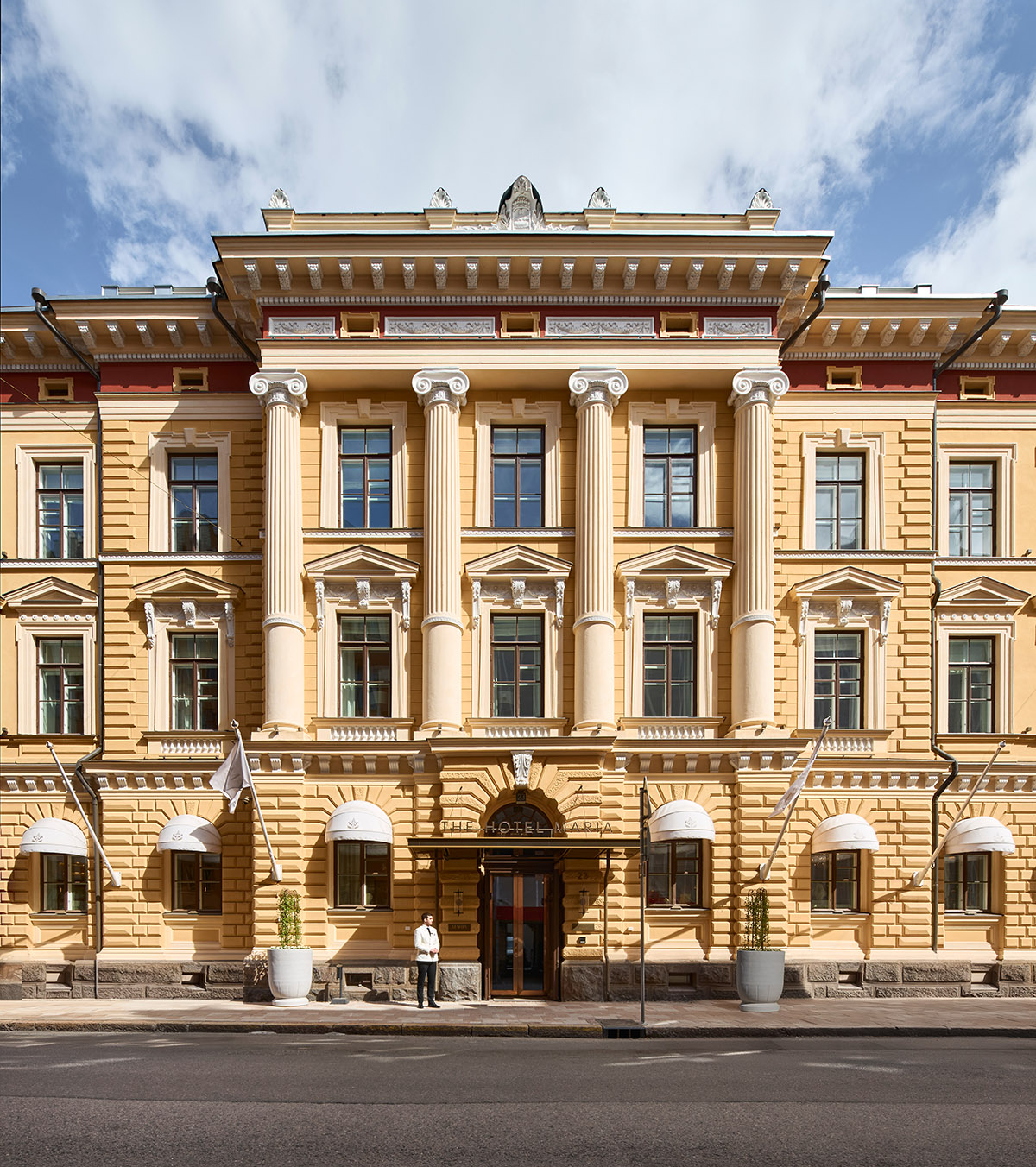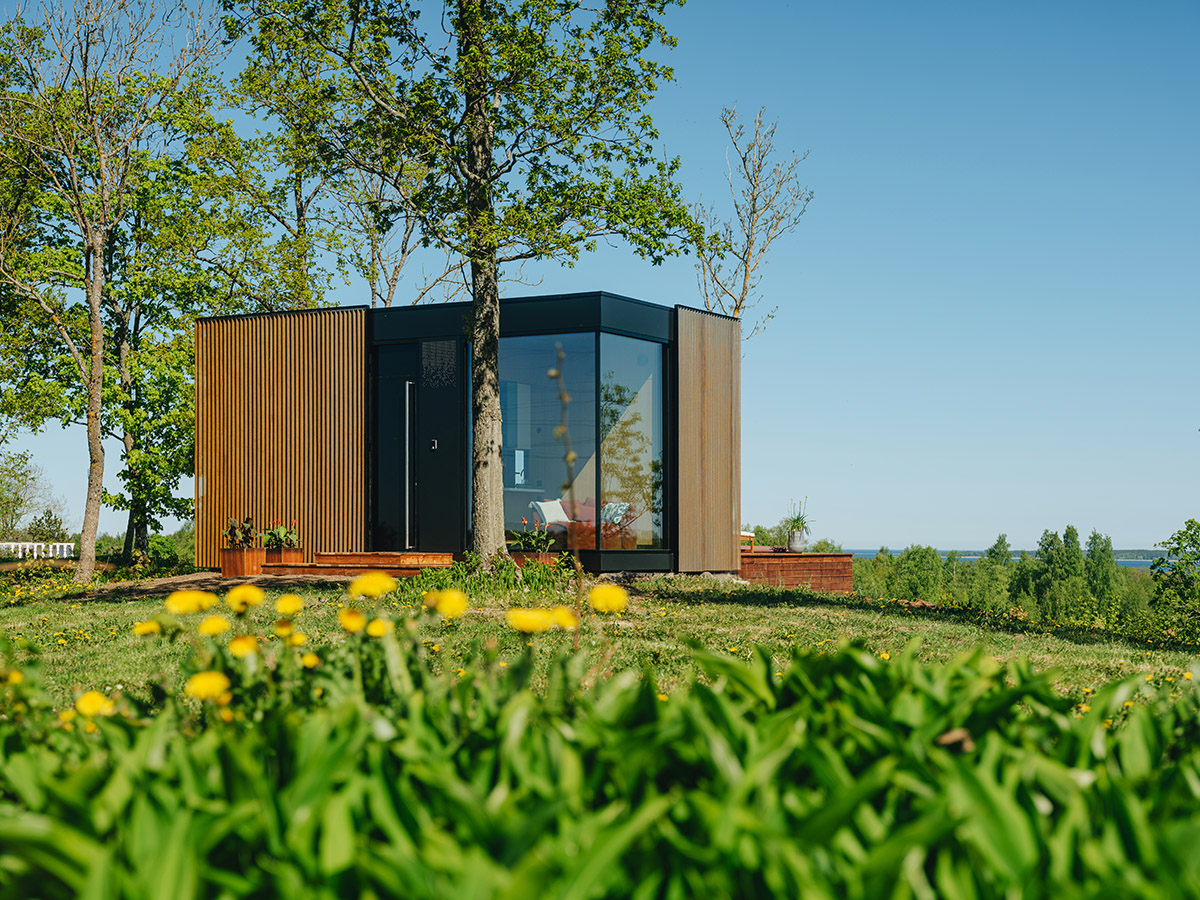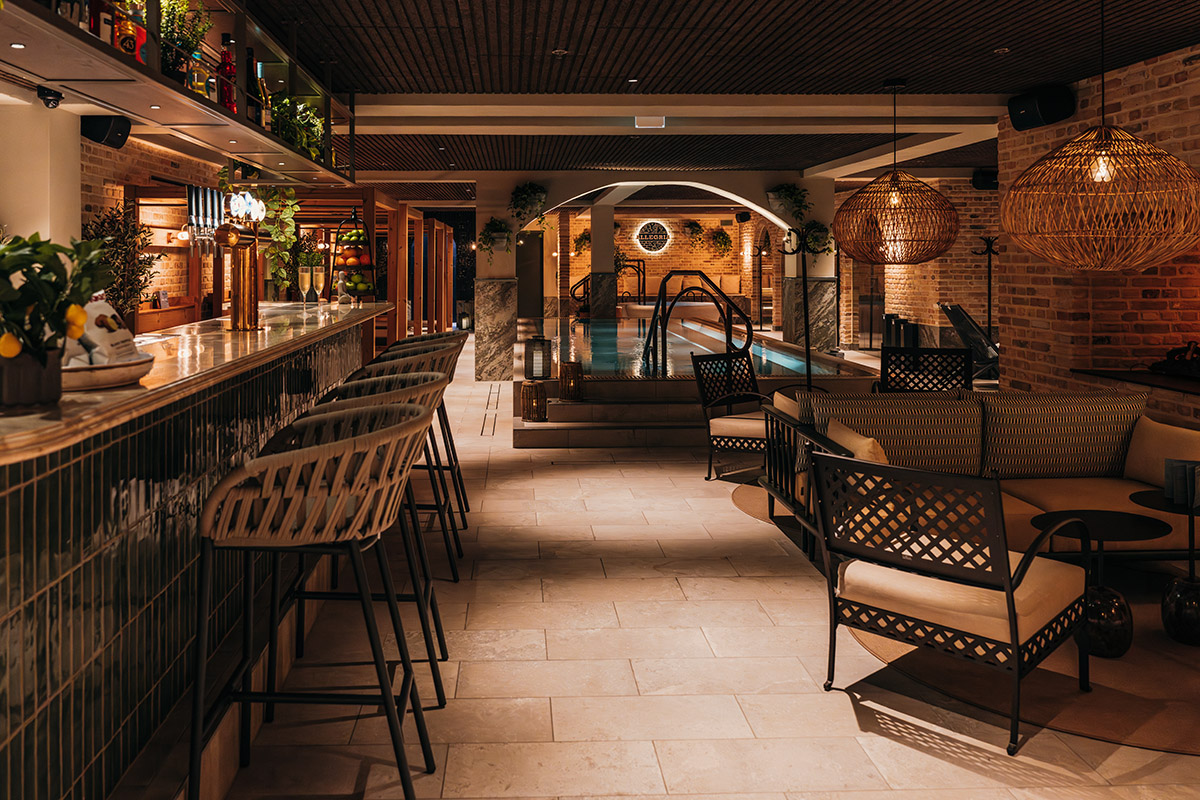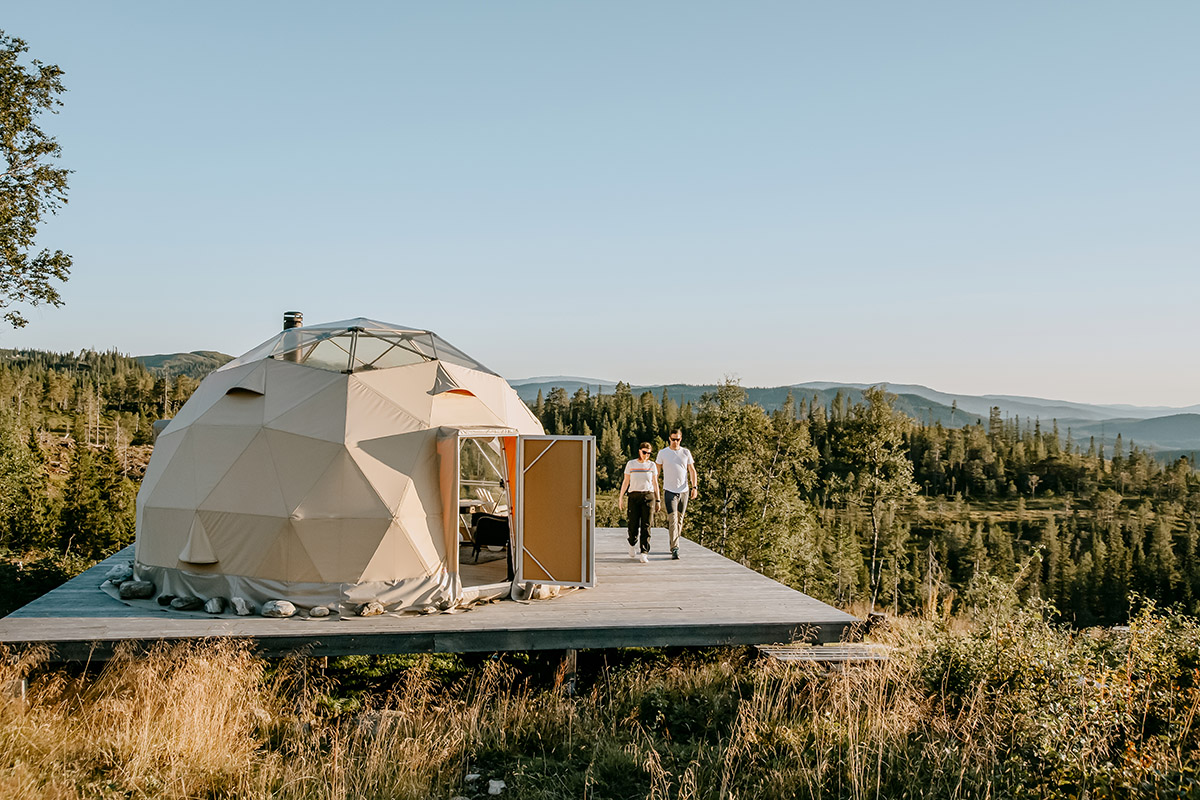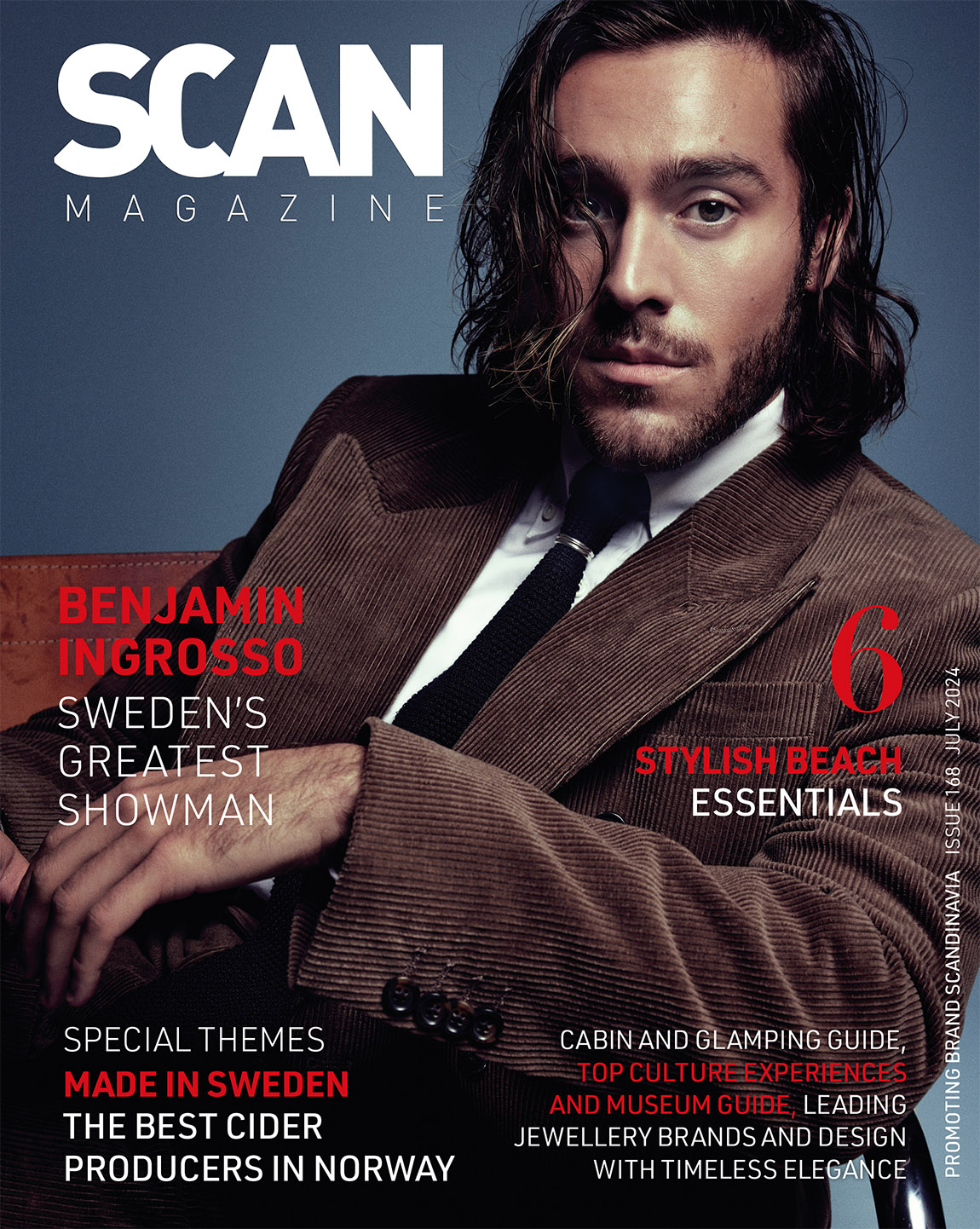Hobo
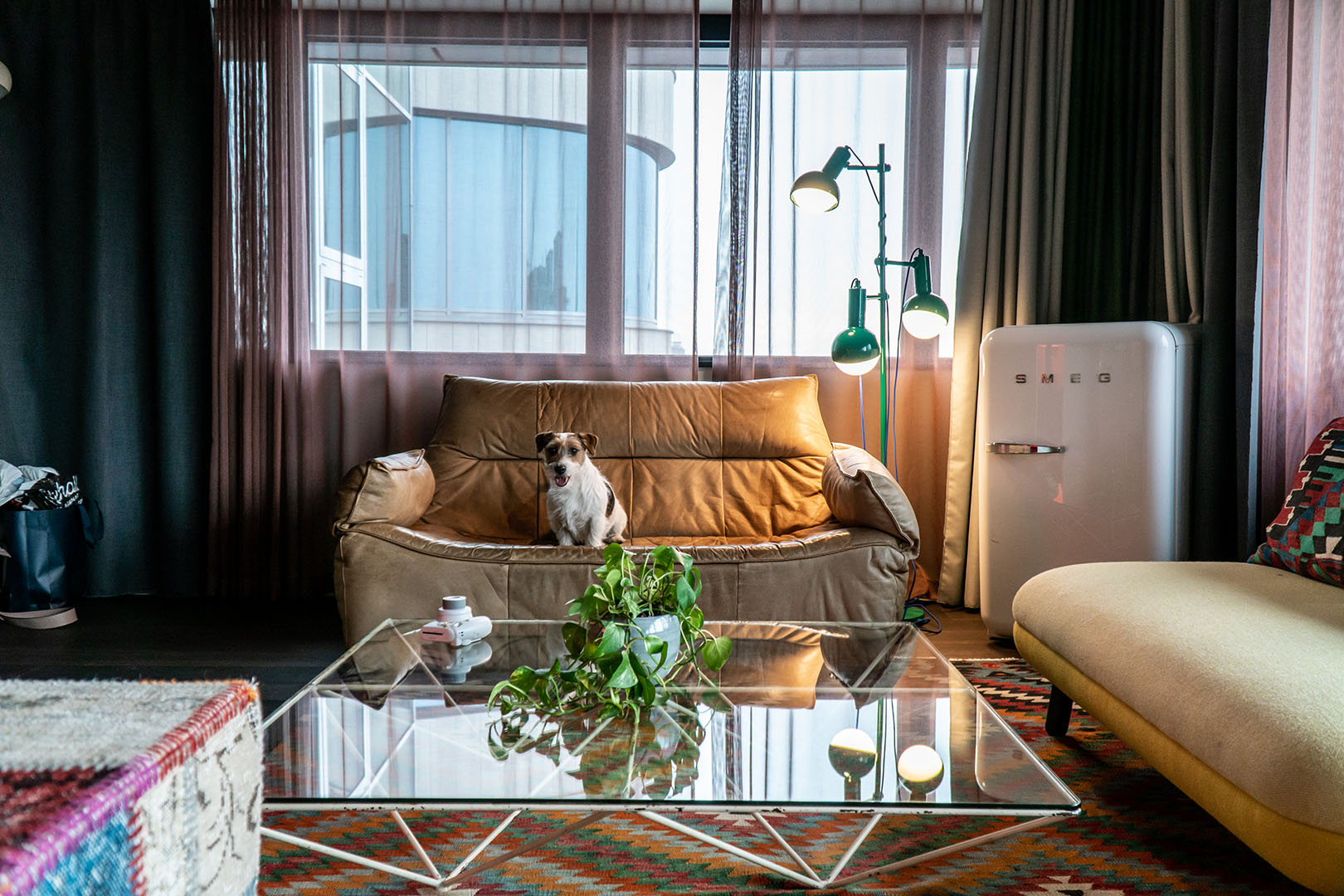
The hotel of the future
TEXT: LIZ LONGDEN | PHOTOS: SOFIA CASTENSSON
The hotel concept has barely evolved since the 19th century, but Hobo has set out to change all that. In addition to smart design and sustainability, this Stockholm-based hotel is founded on the philosophy of providing not only a great place to stay, but a meeting point for people and ideas.
‘Like a hotel room’ has probably not traditionally been a look or feel that many people would aspire to. But then Hobo is not a traditional hotel. It stands out from the crowd with individually designed rooms, which combine a relaxed, contemporary feel with smart technology and clever functionality. And where others might go for formal, Hobo opts for a touch of fun — along with umbrellas, city maps and tote bags, guests are also provided with a pocket synthesiser to borrow for the duration of their stay. This is a hotel that takes the cliché of hotels as impersonal and generic and throws it gleefully out of the window.
Aesthetics are not the only thing that Hobo aims to challenge, however. Arguably more important is its ambition to redefine what a hotel should be. “Our inspiration basically comes from our belief that people today don’t simply want to be spectators, but want to be a part of where they live, whether that be a town or a hotel,” says managing director Mattias Stengl. Their intention, he says, is to create not just a hotel, but a community. “We work with other start-ups and creative individuals to make Hobo a place where people meet, both locals and guests, and that’s a responsibility that stretches far beyond just the hotel room. This is a place where people can listen to a talk, dance, share ideas in a workshop, eat, drink or sleep.”
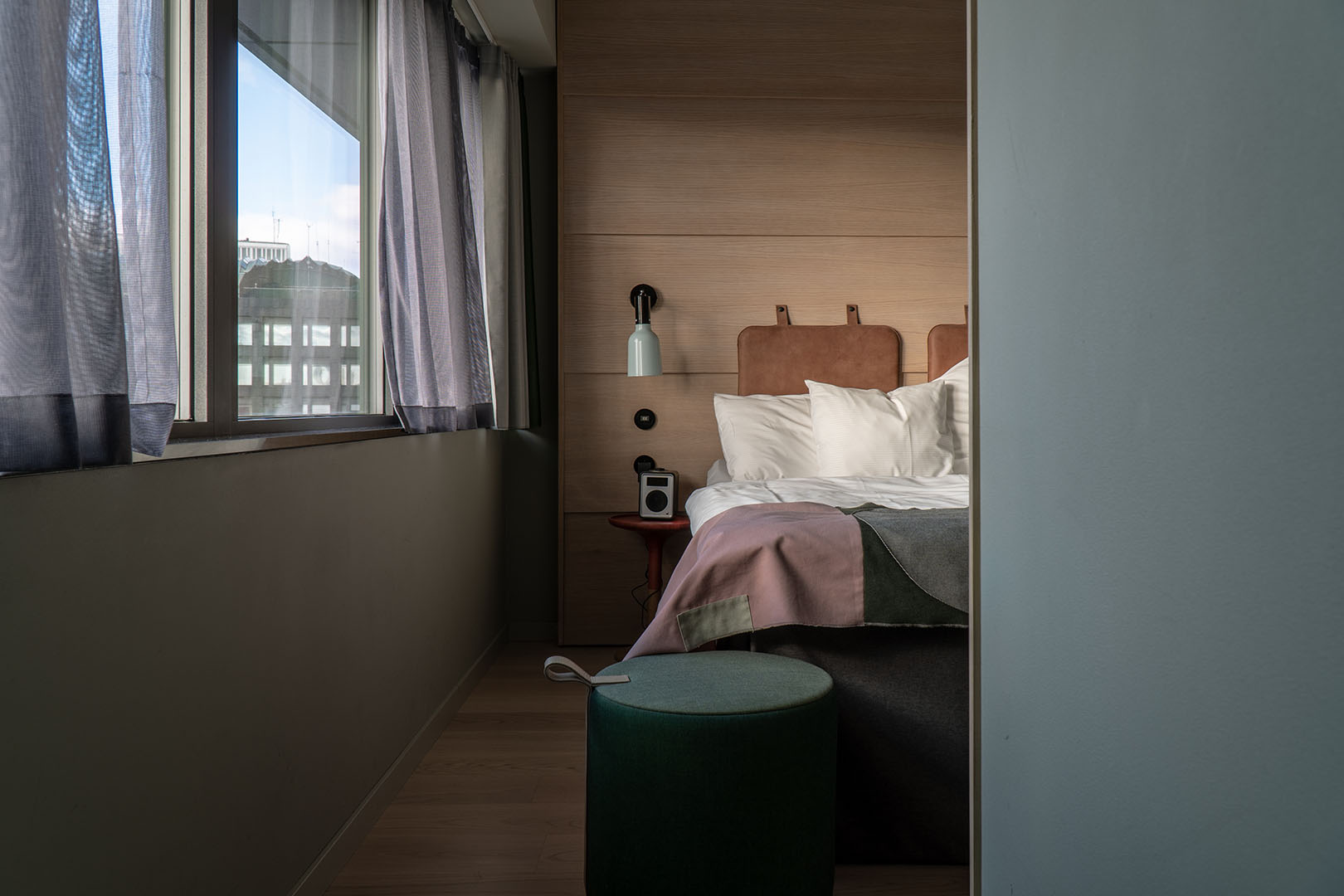
Diversity and exchange
An example of this philosophy in practice is SPACEby. An area measuring nine cubic metres, situated in prime position next to the hotel reception, it is loaned out to start-ups, artists or designers to enable them to present their products. The space changes ‘owner’ every two months, ensuring a constant inflow of ideas. “It’s been a fantastic project, which means that things are happening all the time at Hobo, helping to keep our community alive,” Stengl says. 5EMMAN is another space that can host just about any kind of event, from lectures and book readings to club nights, while the hotel also works in partnership with small retailers, including a store by fashion retail company Grandpa.
The culture of exchange continues outside of the hotel lobby. Hobo sits in Brunkebergstorg, part of the Urban Escape neighbourhood in central Stockholm, which is fast becoming one of the city’s most interesting areas. With its rooftop gardens, over 20 restaurants, and a vibrant mix of shops and businesses, it’s a place that captures the cosmopolitan buzz of the capital. And diversity is also something that characterises Hobo’s guests, whom Stengl says come from different backgrounds but tend to have a shared philosophy. “We have a broad target audience in terms of age, but what most of our guests have in common is an appreciation of our strong connection to the local area,” he says. “They are also often naturally curious people, who don’t especially like traditional hotel environments, but instead want something more creative, contemporary and sustainable.”
Smart solutions
Sustainability is, in fact, another pillar of Hobo’s philosophy, and the hotel has measures in place across the board to reduce consumption and waste. One example is the policy of only cleaning rooms when requested. “We feel that that’s something for the individual to decide, not us, and actually it’s something that has been really appreciated by our guests,” Stengl notes. It has also saved more than 100,000 litres of water a year.
Reducing food waste is another aim. By copying the café model of pay-per-item portions instead of the traditional hotel buffet, Hobo has reduced food waste to just 60 grams per guest. The bar even serves a cocktail – Cereal Killer – made from leftover cereal from breakfast. Hydroponically foyer-grown greens, bike hire and even a collection box in each room for recycling laddered tights are further examples of how Hobo is thinking outside the box and challenging norms.
With its blend of innovation, cool design and forward-thinking, it isn’t surprising that Hobo has been attracting a fair amount of attention since it opened in March 2017, and in April this year, Travelmag included Hobo, which it described as “quirky and beautifully designed” in its list of Stockholm’s top-five boutique hotels. So if you’re in central Stockholm and looking for a spot to not only rest, but connect, inspire and be inspired, you know where to go.
Web: www.hobo.se
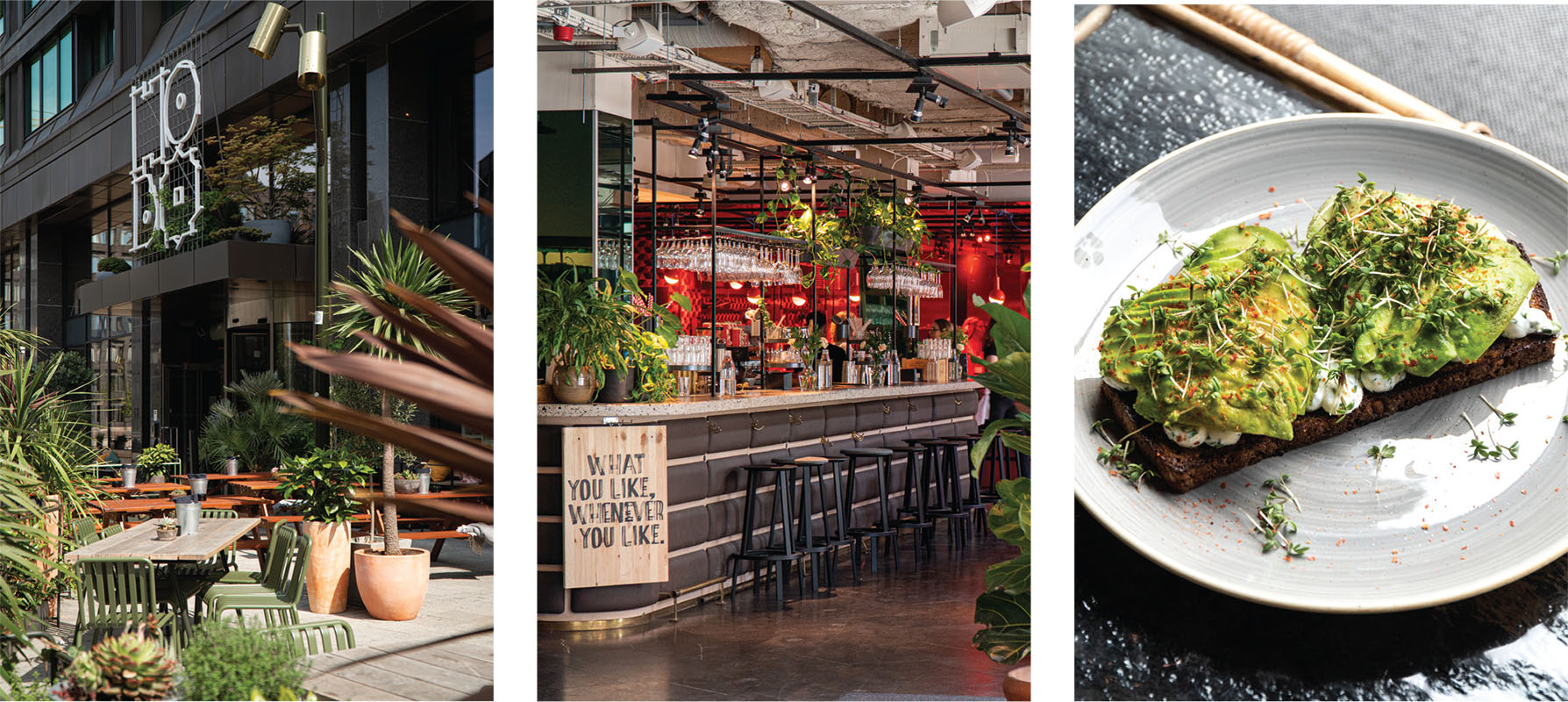
Subscribe to Our Newsletter
Receive our monthly newsletter by email

